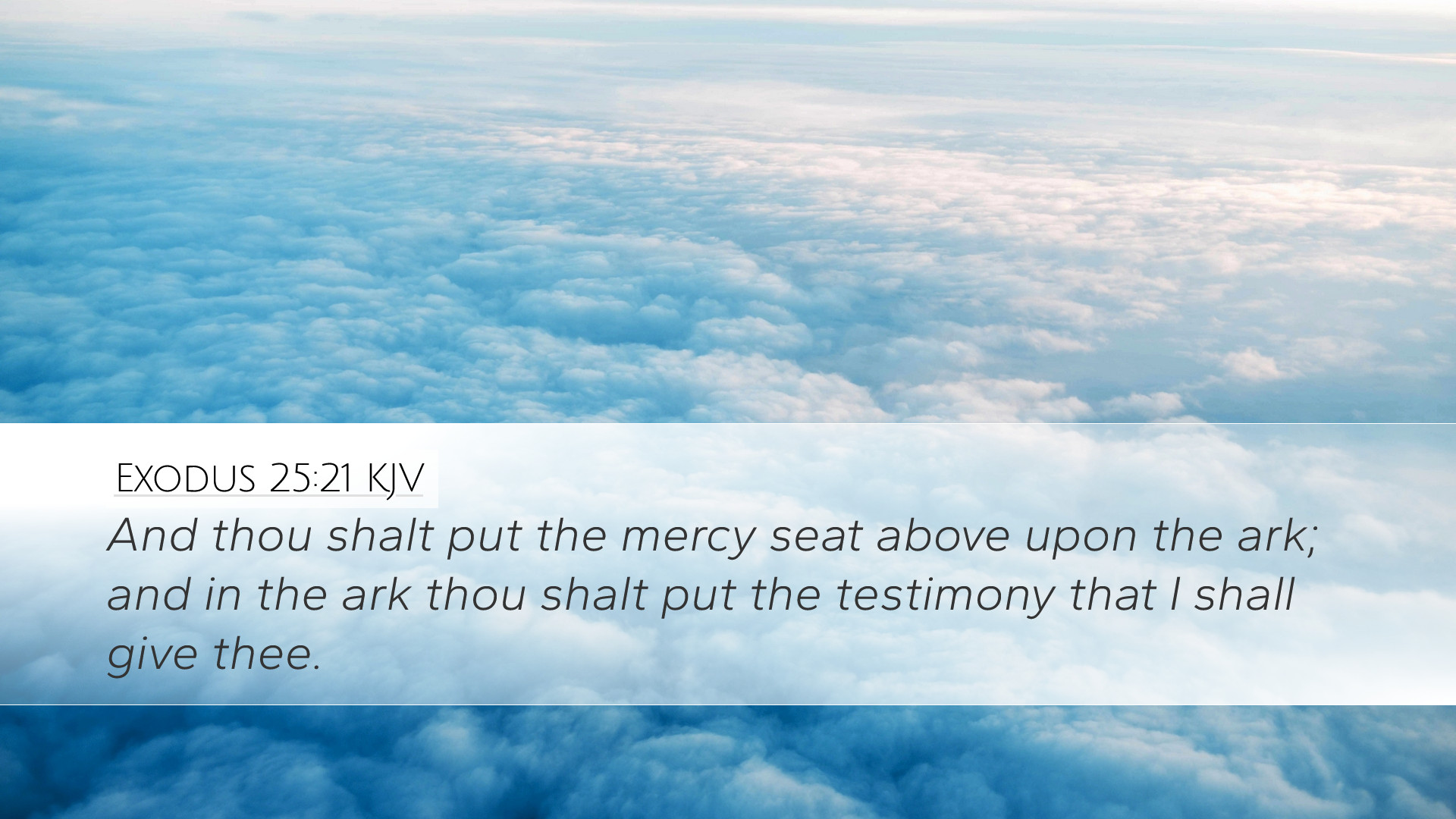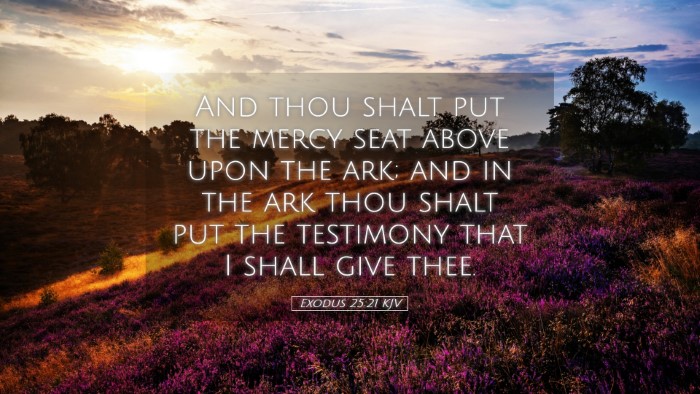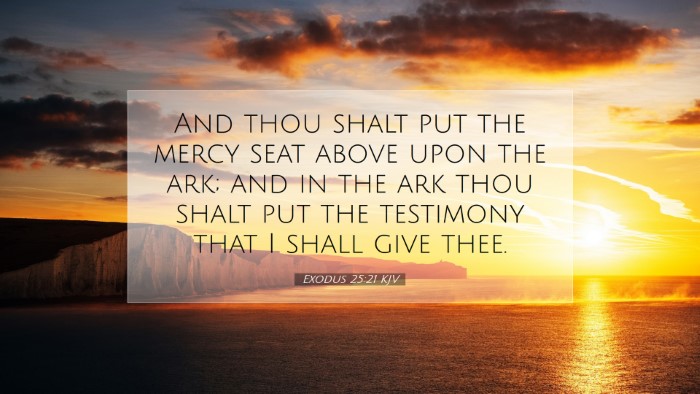Commentary on Exodus 25:21
Verse Context: Exodus 25:21 states, "And you shall put the mercy seat on top of the ark, and in the ark you shall put the testimony that I shall give you."
Introduction
This verse is part of the instructions given to Moses regarding the construction of the Tabernacle and its furnishings, particularly the Ark of the Covenant. The Ark was to be the central focus of Israel's worship, symbolizing God's presence among His people. The mercy seat, or lid of the Ark, holds significant theological implications, particularly concerning atonement and communion with God.
Theological Significance of the Ark
The Ark of the Covenant represents the covenantal relationship between God and Israel. It contained the tablets of the Law, signifying that God's word and moral order should govern the lives of His people. The mercies of God are depicted through the mercy seat, where the presence of God would dwell among Israel.
Insights from Public Domain Commentaries
-
Matthew Henry (Commentary on the Whole Bible)
Henry emphasizes the mercy seat as a symbol of God's grace and mercy. He describes the 'mercy seat' as the place where God meets with His people, underscoring the importance of mercy in approaching God. The Ark, with its cover, symbolizes the balance of justice (the Law) and mercy—the means by which God forgives sin while still holding His people accountable.
-
Albert Barnes (Barnes' Notes on the Bible)
Barnes notes the significance of the placement of the mercy seat on the Ark. He explains that it signifies the meeting place between God and man. The blood of the sacrifice was sprinkled on the mercy seat as a means of atonement, pointing forward to the ultimate sacrifice of Christ. The testimony within the Ark—the tablets—demonstrates that the mercies of God are grounded in His covenant and law.
-
Adam Clarke (Clarke's Commentary on the Holy Scriptures)
Clarke elaborates on the concept of the mercy seat as a place of propitiation. He connects it with the Day of Atonement where the high priest would enter the Most Holy Place and sprinkle blood on the mercy seat, seeking reconciliation between God and His people. This act signifies the removal of sin and the restoration of a relationship with God, an early foreshadowing of New Testament grace through Christ.
Applications for Pastors and Theologians
Exodus 25:21 serves as a profound reminder for leaders in faith communities regarding the importance of mercy in ministry. Just as the mercy seat was central to Israel’s worship, so should the message of God's mercy be central to preaching and teaching.
Pastoral Reflections
- The Centrality of God's Presence: Like the mercy seat, church gatherings should seek to be places where God's presence is felt and honored.
- The Importance of Atonement: Understanding the significance of sacrificial atonement helps in teaching congregations about grace and forgiveness.
- Leading with Mercy: Pastoral care should embody the characteristics of mercy, reflecting God's love and compassion towards the broken and lost.
Conclusion
Exodus 25:21 encapsulates rich theological truths about the nature of God’s relationship with humanity. The Ark of the Covenant, particularly through the mercy seat, symbolizes the reconciliation and communion made possible through God's mercy. For pastors, students, and theologians alike, this verse is an invitation to explore deeper the themes of law, mercy, and the presence of God in their ministries and scholarly pursuits.


